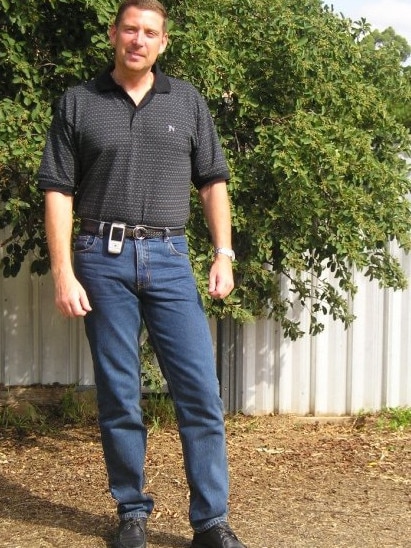Serial rapist loses legal bid to avoid prison transfer over ‘special’ computer access
One of Australia’s worst sex offenders has failed in his bid to stop a prison transfer from Goulburn to Lithgow, after corrections bosses warned of his manipulation of both staff and inmates.

Police & Courts
Don't miss out on the headlines from Police & Courts. Followed categories will be added to My News.
Serial rapist Graham Loughlan Harrison’s past eight years inside Goulburn prison have been so comfortable that he took Correctives Services to the NSW Supreme Court to block his move to Lithgow jail.
Harrison, who tortured young women in several sadistic rapes, is serving more than 36 years and is a designated Extreme High Security (ESO) inmate. His classification brings with it regular moves and transfers, and in January it was decided he was to be relocated due to his influence over staff and inmates.
At a meeting last year, the governor of Goulburn jail raised concerns about his continued placement at the prison, and his alleged use of other inmates to obtain classified documentation belonging to Corrective Services.

“The Governor had a particular concern that it was more than likely that Harrison (had convinced an inmate) to obtain CSNSW documents for him and had attempted to manipulate staff,” court documents read.
The Deputy Governor agreed saying: “Corrective Services NSW staff had expressed concerns of Mr Harrison circumventing security measures in relation to mail, printing and communication.
“As a result of these concerns, I was satisfied that there was an ongoing risk of Mr Harrison continuing to correspond with external offending supporting networks and engage in activities relating to his criminal behaviour.”
But as soon as he heard the news, Harrison lodged a legal fight in the State’s highest court – begging to stay in Goulburn – and the reason was his access to computers. Now in his 50s, he values his access to electronics at NSW’s toughest jail.
In his court filing he described the Goulburn computers as “upgraded” and “special”, saying he had access seven days a week, with priority use on weekends because he had an employment role in textiles. He argued that the computers in Lithgow were not as good, and his access would be diminished, with the routine also “very different”.
Harrison – who is fighting to remove his ESO classification – said the move would prevent his preparation for the legal fight and court proceedings.
But Justice Garling disagreed this week, saying he understood Harrison’s anxiety around moving, but that his reasons were not persuasive. enough to stop the move.





